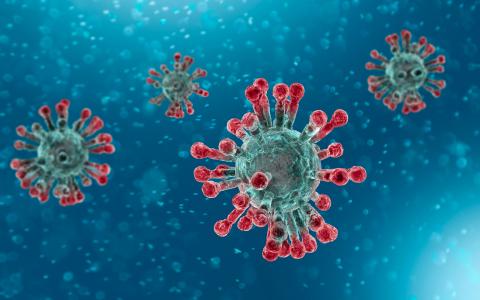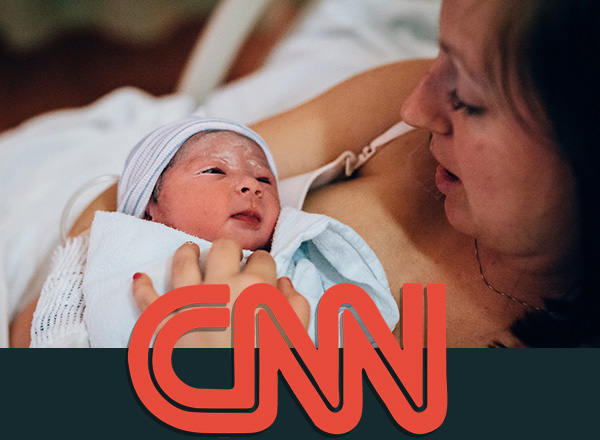Coronavirus and Pregnancy

Protection from Coronavirus in Pregnancy
A few days ago, the British Royal College of Obstetricians and Gynecologists, in collaboration with the Royal Academy of Midwives and the Royal Academy of Pediatrics, gave pregnant women guidance on the necessary protection measures against Covid-19 coronavirus. Thus, during pregnancy, women must abide by all the hygiene and proprietary rules applicable to the general population.
Watch out for suspicious symptoms (fever, cough, shortness of breath), especially if they have traveled or come into contact with a suspected case or even if there are suspected cases in their area. If they do experience similar symptoms, then they should not visit the obstetrician or hospital alone, but should contact their gynecologist or the competent health authorities (ESA) for guidance.
At the same time, guidelines for pregnant women have been published in the authoritative medical journal The Lancet Infectious Diseases which include:
- Any pregnant woman who has traveled to a country that has been infected with SARS-CoV-2 for the past 14 days or has close contact with a patient with confirmed SARS-CoV-2 infection must undergo the SARS specific nucleic acid test. CoV-2, even though it is asymptomatic.
- Pregnant with laboratory-confirmed SARS-CoV-2 infection that is asymptomatic should be monitored at home for clinical features of COVID-19 for at least 14 days. These women as well as those suffering from or suffering from mild illness should be monitored regularly with fetal developmental ultrasound and Doppler.
- Pregnant women with COVID-19 should be treated in a tertiary care center in a hospital, as they may need to be transferred to an intensive care unit.
- For pregnant women with confirmed infection, the timing of delivery should be personalized according to the week of pregnancy and the health conditions of the mother and the fetus. Indeed, in this case, and if the general health of the woman so permits, normal childbirth is preferable.
- Babies who are positive for SARS-CoV-2 should be isolated for at least 14 days or until the virus is recovered and eliminated. In this case immediate breast-feeding is not recommended.
Pregnant women are no more at risk than the rest of us
As Dr. Thanos Paraschos, Gynecologist - Obstetrician, explains. “Studies up to date on the coronavirus epidemic have shown that pregnant women appear to be no more at risk than the general population. Indeed, research into the possibility of transmitting the coronavirus from the pregnant to the fetus has not been completed.
According to the World Health Organization's (WHO) final report on the coronavirus epidemic in China, 9 out of 10 pregnant women (out of a total of 147) infected with the virus had mild to minimal symptoms, and in all cases women recovered and they gave birth to healthy babies.
Nevertheless, All studies in China showed that no newborns were infected, and no traces of the virus were found in milk, umbilical cord blood or amniotic fluid in women. Certain cases of infection in newborns that have seen the light of publicity are believed to have taken place after birth, most likely in the maternity ward. "
As Dr. Paraschos stated:
“What we know for now is from the data we have gathered from pregnant women who are mainly infected in China. So, summarizing and focusing on the most important facts:
- Pregnant women seem to be no more at risk than the general population . Of course, women with underlying diseases such as respiratory problems, coronary disease, kidney disease, hematologic diseases, diabetes mellitus are excluded. These women should definitely be very careful.
- All studies to date show no evidence of transboundary transmission of the virus to the baby . That is, the fetus is not in danger. Of course, pregnant women in China all had a caesarean section, but all babies born had no problem. The baby, of course, as a newborn is at risk from any virus, let alone SARS-CoV-2, which seems to have a completely different biological behavior.
- The virus has not been found in breast milk of women infected with coronavirus COVID-19 . There is no information on whether the coronavirus can be transmitted through breast milk (ie if the virus is detected in the breast milk of an infected woman). In the few cases of women who were breast-feeding and infected by SARS-CoV coronavirus, the virus was not detected in breast milk. However, antibodies against SARS-CoV were detected in at least one case.
- All pregnant women should be constantly informed by their doctor. So far there are no specific guidelines for restricting pregnancy. They therefore follow the guidelines applicable to the general population. Of course, these instructions will constantly change from week to week, or even day to day.
- Can coronavirus affect a couple's fertility? With the current research data there is no negative correlation between a coronavirus infection and fertility or the result of IVF. Of course, with regard to the new virus, this should be scientifically confirmed to rule out any possibility. It takes more time and a bigger sample when the pandemic is a thing of the past. "

